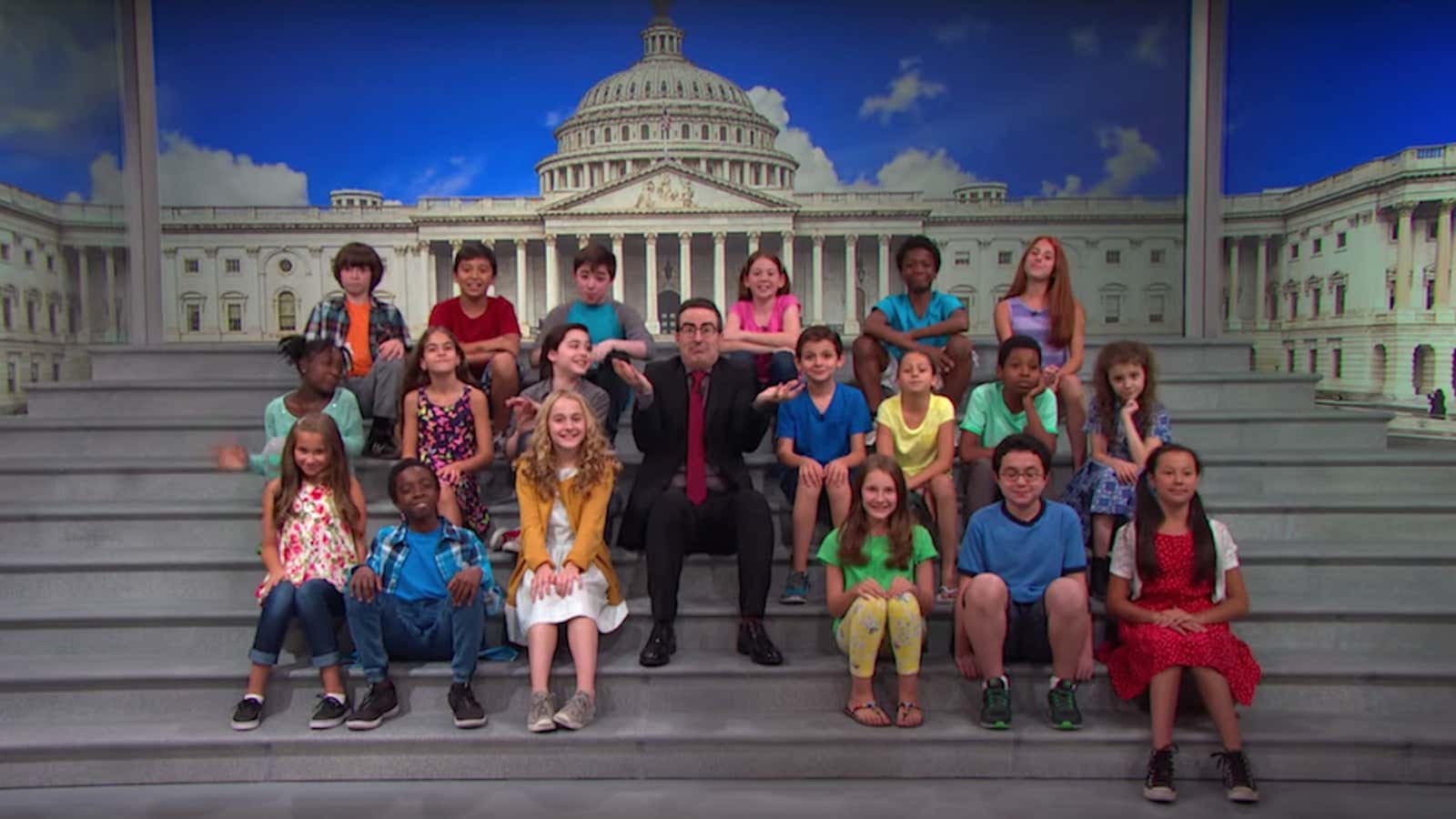John Oliver is using his comedic sway with the American public to shine a light on Washington DC’s fight for statehood, and residents of the US capital are making the most of it. The comedian used his latest episode of Last Week Tonight with John Oliver to complain about the problems Washington DC faces because it lack state rights.
The city slogan is “taxation without representation” for good reason, Oliver said: Residents pay taxes to the country but the final say on the city’s budget is decided by Congress. Each year Congress votes on the city’s affairs without even the vote of a representative from DC, who are allotted one non-voting member in the House of Representatives.
“Given that DC is fairly liberal and diverse city and Congress is frequently neither of those things, over the years Congress has repeatedly stepped in whenever DC is about to do something that they might disapprove of,” Oliver explained. Examples include local decriminalization of marijuana and the city’s gun laws.
Since the segment aired this week (on Aug. 2), activists have stepped up their fight for statehood, reenergized by the attention from Oliver. DC residents have organized a sing-along on Oct. 9 on the steps of Capitol Hill, featuring the humorous song that Oliver sang about DC statehood on his show.
Maria Helena Carey, a freelance writer and blogger and one of the sing-along’s main organizers, tells Quartz that the organizers have reached out to Oliver for more attention and to DC congressional representative Eleanor Holmes Norton to attend the sing-along.
Fellow blogger and DC tour guide Tim Krepp credits Oliver with creating a “huge social media moment for DC” and forcing people to pay attention to a cause that so far has ”seemed insurmountable,” he tells Quartz.
Oliver’s comedy has catalyzed change before. Last summer, his wry coverage of the esoteric debate over net neutrality was linked to a flood of submissions to the Federal Communications Commission (FCC) comments section that crashed the system the next day. In February, the FCC officially reversed course on the issue, voting to preserve the policy of net neutrality in a contentious 3-2 vote. Members of the FCC even cited Oliver’s segment as a driver of the reversal.
